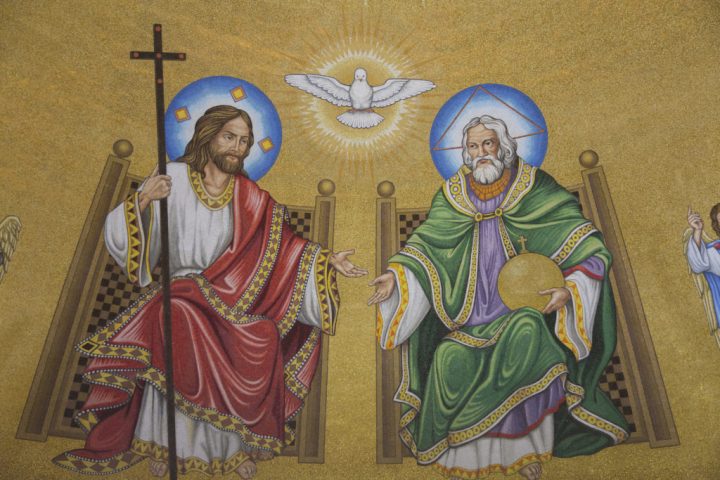Msgr. Charles Pope: Why Does Jesus Say That the Father Is Greater Than He If the Members of the Trinity Are Equal?

Fr. Nnamdi Moneme, OMV: Experience the Transforming Power of Each Mass
June 8, 2023
Bsp. Thomas J. Paprocki: The Law of the Heart is Love
June 8, 2023
Trinity Dome
By Msgr. Charles Pope, June 6, 2023
A common question arising around the time of Trinity Sunday is rooted in this passage from John’s Gospel:
If you loved me, you would be glad that I am going to the Father, for the Father is greater than I (Jn 14:28).
This is somewhat puzzling because we are taught that each Divine Person of the Blessed Trinity fully possesses the nature of God and is equally to be adored and glorified. What, then, did Jesus mean when He said, “the Father is greater than I”?
The most common (and correct) answer is that in this passage Jesus was speaking in reference to His human nature, in which He is inferior to the Father; in His divine nature He is equal to the Father. Many of the Church Fathers spoke in this way. For example,
-
-
St Augustine said, Let us acknowledge then the twofold substance of Christ, the divine, which is equal to the Father, and the human, which is inferior. But Christ is both together, not two, but one Christ: else the Godhead is a quaternity, not a Trinity. Wherefore He says, If ye loved Me, ye would rejoice, because I said, I go to the Father; for human nature should exult at being thus taken up by the Only Begotten Word, and made immortal in heaven; at earth being raised to heaven, and dust sitting incorruptible at the right hand of the Father. Who, that loves Christ, will not rejoice at this, seeing, as he doth, his own nature immortal in Christ, and hoping that He Himself will be so by Christ (Quoted in the Catena Aurea at John 14:28).
-
Didymus the Blind said, When he says “greater” he indicates that his divinity can be equaled to the Father, since he is of the same substance as him, but the Father is greater because the Son accepted a body…The Son’s nature is understood to be less than that of the Father inasmuch as the Son became man (Fragments on John at 14).
-
Hilary of Poitiers said, By the birth of the Son the Father is constituted greater … in that the Son, born of the Father, after assuming an earthly body, is taken back to the glory of the Father (On the Trinity, 9:56).
-
Theodoret of Cyr had Jesus speak, saying, Sometimes therefore I, [Jesus] say that I am equal to the Father, and at other times say that the Father is greater than I. I am not contradicting myself, but I am showing that I am God and a human being … If you want to know how the Father is greater than I, I was talking from the flesh, not from the person of the Divinity (Dialogue 1:56).
-




